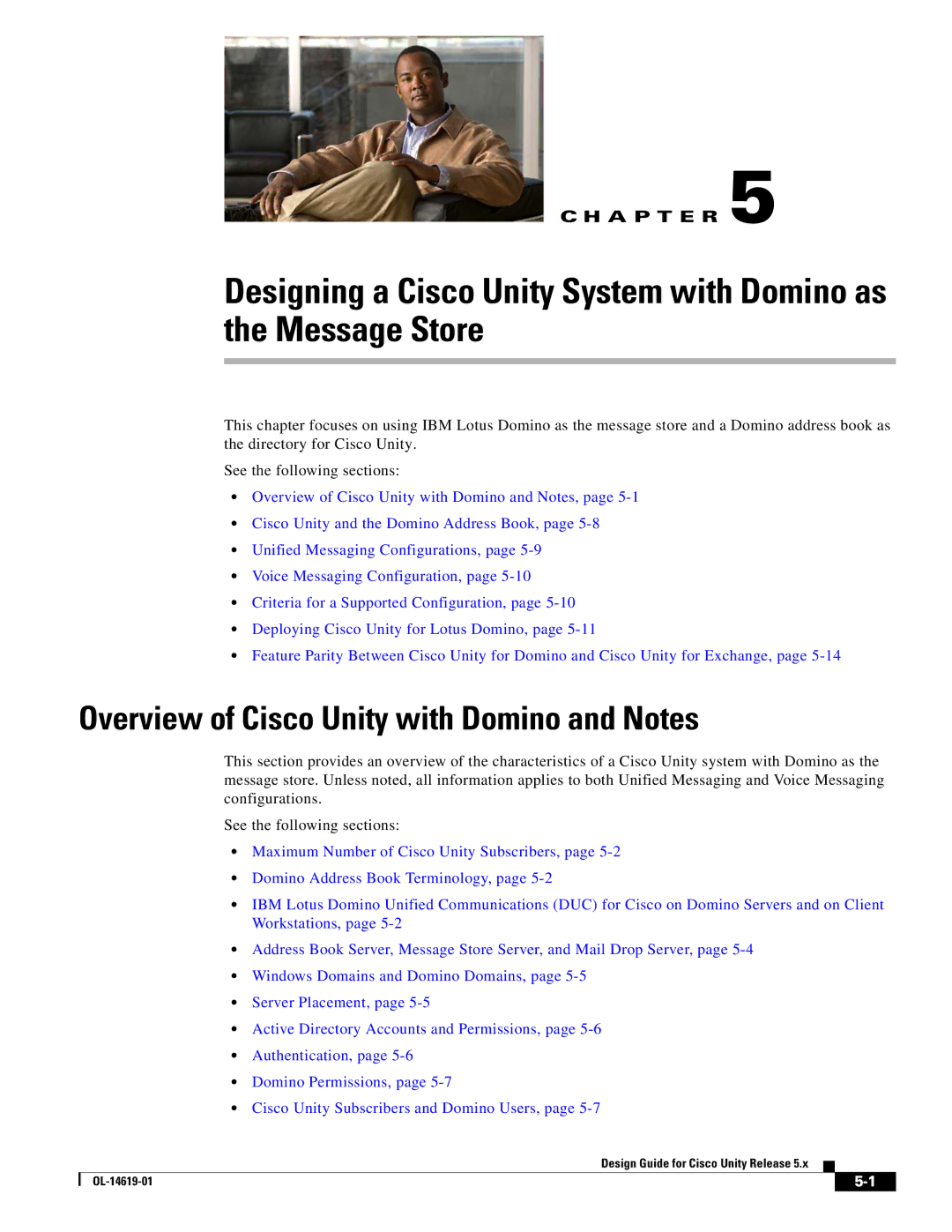
C H A P T E R 5
Designing a Cisco Unity System with Domino as the Message Store
This chapter focuses on using IBM Lotus Domino as the message store and a Domino address book as the directory for Cisco Unity.
See the following sections:
•Overview of Cisco Unity with Domino and Notes, page
•Cisco Unity and the Domino Address Book, page
•Unified Messaging Configurations, page
•Voice Messaging Configuration, page
•Criteria for a Supported Configuration, page
•Deploying Cisco Unity for Lotus Domino, page
•Feature Parity Between Cisco Unity for Domino and Cisco Unity for Exchange, page
Overview of Cisco Unity with Domino and Notes
This section provides an overview of the characteristics of a Cisco Unity system with Domino as the message store. Unless noted, all information applies to both Unified Messaging and Voice Messaging configurations.
See the following sections:
•Maximum Number of Cisco Unity Subscribers, page
•Domino Address Book Terminology, page
•IBM Lotus Domino Unified Communications (DUC) for Cisco on Domino Servers and on Client Workstations, page
•Address Book Server, Message Store Server, and Mail Drop Server, page
•Windows Domains and Domino Domains, page
•Server Placement, page
•Active Directory Accounts and Permissions, page
•Authentication, page
•Domino Permissions, page
•Cisco Unity Subscribers and Domino Users, page
Design Guide for Cisco Unity Release 5.x
|
| ||
|
|
